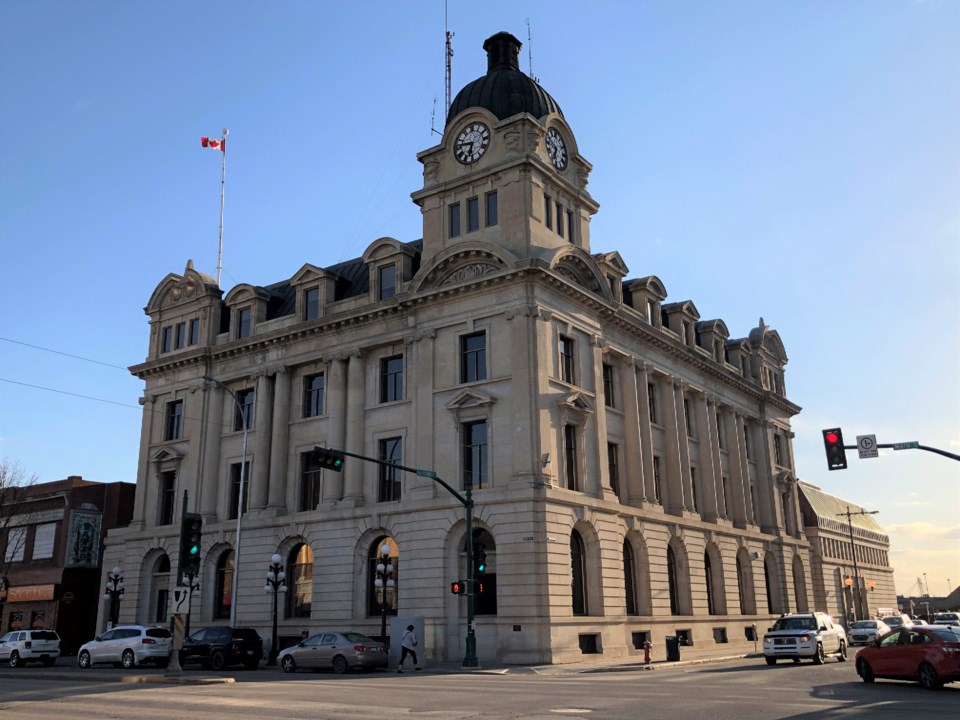MOOSE JAW — Moose Jaw has received more than $30 million over the past 20 years for infrastructure funding from the federal government and is hoping for more money to support an important wastewater project.
During its April 7 regular meeting, city council approved submitting the Crescent View Headworks replacement project to Ottawa’s Canada Community-Building Fund (CCBF), formerly the gas tax fund.
The federal government renewed the CCBF program earlier this year and separated the program into two funding streams, a council report said. The first stream runs from 2025 to 2029 and will provide Moose Jaw with $10,779,533, while the second stream runs from 2030 to 2024 and will provide the city with roughly $11 million.
The federal government provided Moose Jaw with $12,634,845 in gas tax/CCBF funding from 2005 to 2014, $11,985,294.80 from 2014 to 2019 and $12,547,772.50 from 2019 to 2024, totalling $37,167,912.30, the report said. There was also $237,086.55 in interest that the municipality reported, which brought the overall total to $37,404,998.85.
The city allocated $33,045,118.46 to approved projects — most were water/wastewater-focused — while actual expenses were $30,845,118.46, leaving $6,559,880.39 to be spent.
“As you can see, the CCBF plays an integral part in the City of Moose Jaw’s capital infrastructural renewal,” finance director Brian Acker said during the meeting.
The report noted that before Ottawa renewed this agreement, the CCBF funding had few requirements and the city could submit any infrastructure project for approval. Moreover, from 2005 to today, the federal government approved all of Moose Jaw’s requests without restrictions.
However, the new agreement requires cities with more than 30,000 people to complete a housing needs assessment, while municipalities with infrastructure-related housing gaps must invest CCBF funding in projects that would improve those issues, the report continued.
The assessment that city hall completed lays out future targets for housing needs in the community, such as:
- Shelter space must increase by 20 units over five years to provide emergency housing solutions for people facing homelessness; there are 41 shelter units, while a point-in-time count determined there are roughly 118 homeless people
- Transitional and supportive housing must increase by 20 units per year for the next five years to serve people requiring stability and services before moving into permanent housing; Moose Jaw has 93 such housing units
- Affordable housing units must increase by 50 units over five years to ensure that low-income people and families have access to secure and reasonably priced housing; there are 1,212 affordable housing units, but a gap of 940 units exists
- Independent housing for 55-plus households must increase by 40 units per year over five years to accommodate aging residents who want independent living options; 730 units exist, while projections indicate an extra 2,690 households will emerge by 2036
- New entry-level market housing must increase by 40 units per year over five years to sustain a balanced market growth and prevent the loss of 761 market-based households by 2036
City administration considered these requirements when identifying the $66-million Crescent View Headworks project as the municipality’s top need and determined the initiative meets the assessment requirements, the report added.
It’s clear that Moose Jaw has “significant needs” for housing, but without the new Crescent View Headworks, there is no way the city could build additional housing because it wouldn’t have the capacity to support them, said Acker. The assessment requires Moose Jaw to build 155 dwellings per year from the current 43 units to meet those demands.
Acker also said that this funding won’t change based on the outcome of the federal election.
“My advice to any other level of government is these funds … need to increase. We need additional funding, not less funding,” he said.
“My hope is (that) regardless of the government that takes over, they would have a significant look at the infrastructure needs of all the various communities in Canada and hopefully earmark some additional monies for us,” Acker added.
The next regular council meeting is Monday, April 28.




